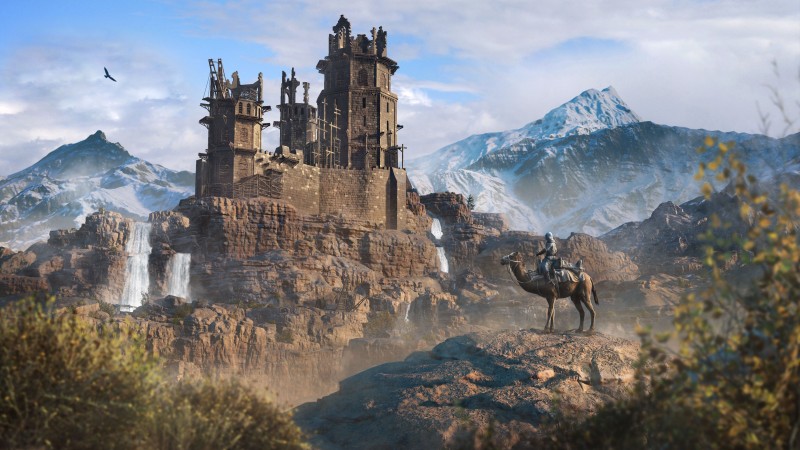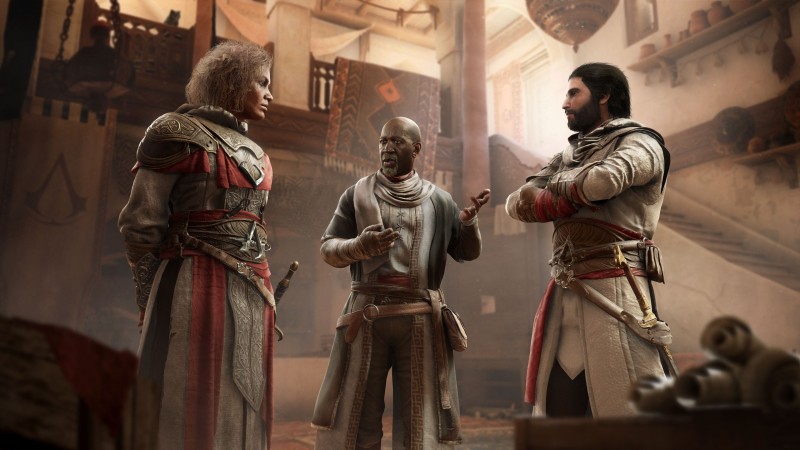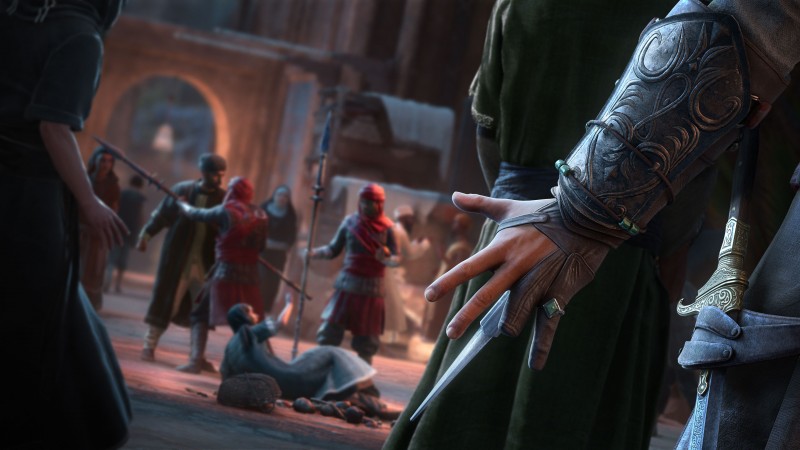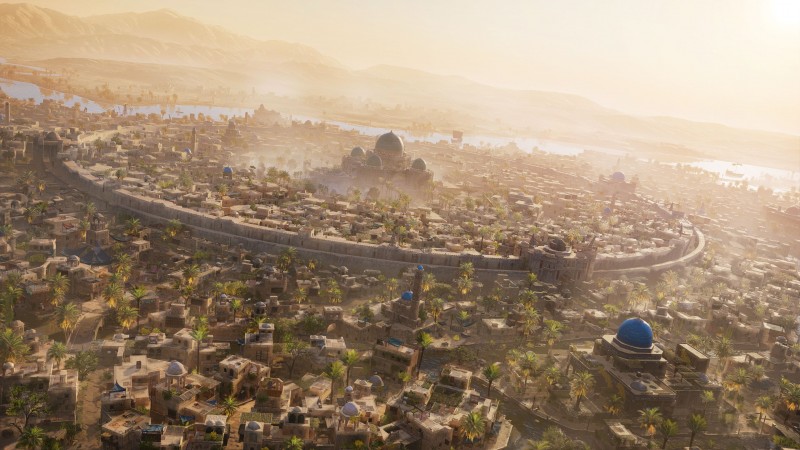
Reviewed on: PlayStation 5
Platform: PlayStation 5, Xbox Series X/S, PlayStation 4, PC, iOS
Publisher: Ubisoft
Developer: Ubisoft Bordeaux
Release: (PlayStation 5, PlayStation 4, Xbox Series X/S, PC), 2024 (iOS)
For years, the Assassin’s Creed franchise has expanded the scope of its entries, offering ever longer adventures across increasingly vast open worlds. For players who first tried the series through those entries, Assassin’s Creed Mirage may be a shock. Set mainly within the single city of ninth-century Baghdad and playable to completion in under 20 hours, Mirage harkens back to the earliest entries starring Altaïr and Ezio. For more longtime fans, many elements will feel like a return to familiar territory, with the commensurate highs and lows that characterized those early installments.
First introduced in 2020’s Assassin’s Creed Valhalla entry where he appeared as an older member of the Brotherhood, Basim is presented here in his early life. We learn of his transition from street thief to Master Assassin, and the plots he uncovers across the city through a series of investigations and assassinations. The return of the mysterious castle of Alamut, the hidden urban bureaus, and the cautious, structured approach to tracking and taking down primary targets – it’s all a nod to the early life of the series. The storytelling and freeform progression of the plot are enjoyable, even if the dialogue feels stiff and formal at times.
Gameplay is a distinct return to a predator-prey style; stealth and tool usage are essential, and open conflict against even a few enemies can quickly lead to death. Even in one-on-one encounters, the melee exchanges are not a high point, as they feel rigid and clumsy. On the other hand, Mirage’s missions and contracts often present exciting and curated setups for stealth. Enemy and objective placement is deliberate and thoughtful, forcing players to watch enemies closely and move carefully. The threat of death if discovered is high, which leads to greater tension and engagement with an approach.
The dense urban sprawl of Baghdad’s Golden Age is a joy to explore. Lyrical musical melodies follow you along rooftops as russet sunsets paint the sky. Busy street merchants hawk their wares, unwary citizens are ripe for pickpocketing, and hidden chests demand careful observation to reach. High notoriety is a genuine danger as guards converge and hunters track you down. The opportunity for engaging parkour traversal is always present, and moving along rooftops, sliding down zip lines, and diving into hiding spots is great fun.
Individual missions often have some fun twists and turns, and I like the way the game encourages decisions in the stalking of a target. Choosing between two or three distinct tactical routes provides a sense of creativity. Nailing a complete infiltration with no one the wiser only to slip away in the uproar surrounding your villainous victim’s death is deeply satisfying.
While I enjoy the missions, too many rely on dull investigation areas, where I was forced to scour a zone until I found just the right book or clue to progress. Too often, these devolved into aimless wandering that felt like a waste of time.
Even so, across the board, the excess that has characterized recent entries seems to have been reined in. The money and favor tokens you earn are valuable and must be spent with care. Acquiring a new tool is a big deal, and can be transformative to approaching a fight. Fewer side missions or activities are on offer, but those here feel curated and purposeful. It’s a more compact game, but I felt driven and engaged with everything I did along the path to its completion.
Mirage teases a larger mystery that connects to Basim’s role in the earlier Valhalla release. But in this case, the resolution of that mystery is unsatisfying and feels like an odd wrap-up to an otherwise self-contained narrative. Concerns about the conclusion aside, I still had a wonderful time in Baghdad’s ancient alleys and palaces. Not everything is perfect, but the “less is more” design philosophy goes a long way to making this one of the most consistently engaging titles within the series for some time.
Score: 8
About Game Informer's review system
PurchaseSource: Game Informer



Comments
Post a Comment